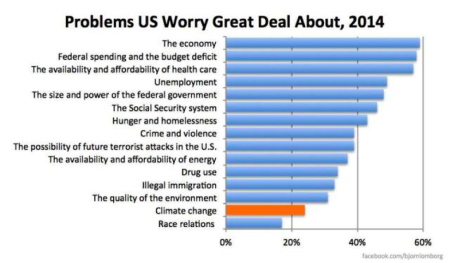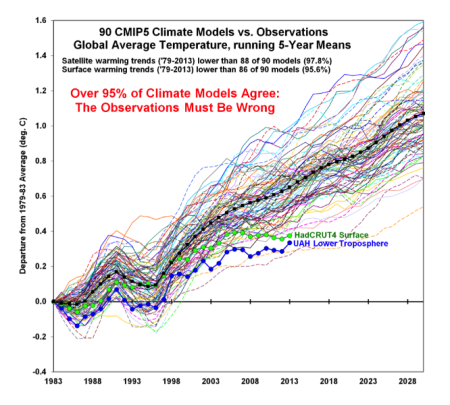Evangelical Leader Urges President to Pressure Pope on Global Warming
Rev. Richard Cizik, who in 2008 lost his influential position as Vice President for Governmental Affairs with the National Association of Evangelicals because he endorsed same-sex unions, had two golden parachutes. First Ted Turner brought him into his United Nations Foundation. Then George Soros took him into his Open Society Institute. Both helped fund the start of Cizik's New Evangelical Partnership for the Common Good.
Why would those two billionaires support Cizik? Soros is an atheist. Turner, though no longer the atheist who called Christianity a religion for losers and advocated replacing the Ten Commandments with his Green-colored "Eleven Voluntary Initiatives," is still an agnostic. But both believe the world is overpopulated and needs population control, even through coercive government programs. Both are committed environmentalists. And Cizik agrees with them.
More recently Cizik launched a petition urging President Obama to report on his climate action plan when he met with Pope Francis March 27. As of the day after the meeting, the petition had gathered only a disappointing 1,279 signatures. Why? Perhaps because, as the most recent Gallup polling showed, most Americans just aren't worried about climate change. Evangelicals, for good reasons, are even less likely to worry about it.

Cizik bemoans "toxic air (carbon) pollution" and "climate change," which he calls "the most pressing issue facing generations to come." But he needs to catch up with the science.
By "toxic air (carbon) pollution," Cizik doesn't mean carbon monoxide—a deadly gas. He means carbon dioxide—CO2. But CO2 is not only non-toxic and safe to breathe at atmospheric concentrations over twenty times their current level of about 400 parts per million, it's also essential to life. The more plants get, the better they grow.
Indeed, a survey of scientific research on the subject concludes that the CO2 we've added to the atmosphere since the Industrial Revolution (going from about 280 to about 400 parts per million) contributed about $3.2 trillion in food crops from 1961 through 2011. If CO2 concentration continues to rise as projected, it will contribute another $9.8 trillion by 2050.
That makes food more abundant and affordable for the world's poor—people about whom Pope Francis cares a great deal.
Cizik also needs to get his science straight on what he calls "climate disruption" (aka "climate change," aka "global warming"). His alarm rests on the belief, based on computer climate models, that earth's atmosphere would warm by about 2.0–4.5°C, with a best estimate of 3.0°, in response to doubled CO2.
That was the view of the highly politicized United Nations Intergovernmental Panel on Climate Change (IPCC) for over twenty years, but its 2014 Fifth Assessment Report, released in September, reduced its lower bound by a fourth, to 1.5°C, and refused to give a "best estimate."

That change seems to have come from the fact that there has been no upward trend in global average temperature for at least 17 years, something irreconcilable with over 95% of the computer climate models on which the IPCC depends. Not only did they not predict the absence of warming since 1997, but also they exaggerated the warming over the last 30 years, running from two to four or more times hotter than the empirical observations.
That lack of warming has caused climatologists around the world to reduce their estimates of "climate sensitivity"—warming from doubled CO2—and some of the latest studies indicate a probable range of 1.25–3.0°C with a best estimate of 1.75°, while others indicate even less warming, from about 0.3–1.1°C, either of which not only wouldn't be dangerous but would bring about much benefit. Even the IPCC is finally reining in its previous fears of climate catastrophe with soon-to-be-released Working Group II (Impacts) Fifth Assessment Report.
Not surprisingly, Cizik didn't petition Pope Francis to discuss population control and family planning with the President. The Pope would have given the wrong message.
In a 2006 World Bank meeting, Cizik said, "I'd like to take on the population issue, but in my community global warming is the third rail issue. I've touched the third rail … but still have a job. … But population is a much more dangerous issue to touch. … We need to confront population control and we can—we're not Roman Catholics after all—but it's too hot to handle now."
No longer. Two years ago in "Family planning is both godly and green," Cizik advocated family planning programs to curtail population growth. Why? To fight global warming.
Obviously, by "We need to confront population control" Cizik didn't mean "We need to reject it." He meant we need to embrace it—even if not via a brutal one-child policy like China's.
But anyone who thinks population control is a noble cause needs the sometimes gruesome history lessons in Betsy Hartman's Reproductive Rights & Wrongs: The Global Politics of Population Control and Matthew Connelly's Fatal Misconception: The Struggle to Control World Population.
Fertility and population growth rates have already fallen all over the world. Almost all developed and many developing countries have fertility rates below replacement level, and other developing countries are fast approaching that. Global population is set to peak around mid century and then begin a decline that could put it as low as 300 million (about 5% of present population) by 2300.
In appealing to both President Obama and Pope Francis, Cizik not only doesn't speak for either evangelical Protestants or Catholics but also lacks both scientific and ethical basis for his message.
On climate change, the Pope is likely to benefit from the wise advice of Cardinal George Pell, recently appointed Prefect of the Vatican's newly created Secretariat for the Economy, who is a well-informed and staunch foe of global warming alarmism. Cizik and those evangelicals who stand with him could stand to learn a little from Pell.





















